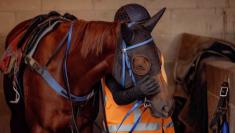Bernard's Blog: 7 Jun 19
This week James Dunne and I represented our industry arguing our case in front of the select committee as the Racing Reform Bill moved through the parliamentary process.
As we stressed to the members of the Transport and Infrastructure committee which sat on Wednesday, our industry is in crisis and the current model is broken. We need reform on every level and without the legislative changes outlined in the Racing Reform Bill our decline will continue.
The dire position of the industry was confirmed with the Department of Internal Affairs, in its Regulatory Impact Statement, stating there was a real risk that our decline could continue to the stage where the industry was no longer viable.
It is not a pretty picture which was painted, but for the 4,000 trainers, jockeys, apprentices and stablehands employed in our industry it is something of which they are well aware. Those operating in the minimum wage end of the pay scale know we are at a tipping point.
Likewise, when it comes to keeping owners investing in racing horses and breeders investing in breeding horses, this industry does not have the luxury of time which is why we supported the government’s quick action on this legislation.
The same day we, along with the other codes and the NZRB, met with the MAC to discuss our on-going approach to outsourcing the TAB.
While this was going on in Wellington, it was business as usual as other NZTR representatives met with sector representatives in Cambridge. The topic of that meeting was to discuss rule changes to implement owner/trainer reforms; thoroughbred welfare guidelines and amendments to the rules around welfare and traceability.
Good progress was made in both areas. The NZ Trainers’ Association and NZ Racehorse Owners’ Federation agreed that the formalising of the owner/trainer relationship would benefit both parties. It has already been demonstrated in Australia that, since the introduction of reforms, the number of matters requiring resolution by authorities has declined significantly.
There was also strong support of the welfare guidelines and appreciation of the time invested in this area. The guidelines have been developed over the past two years led by internationally acclaimed academic Professor David Mellor, one of just nine scientists in the world to receive the Universities Federation for Animal Welfare medal.
It may have been a short week, but it has been full of diverse activity. Now we wait to see what happens with the Racing Reform Bill when the select committee reports back to the House next week.









